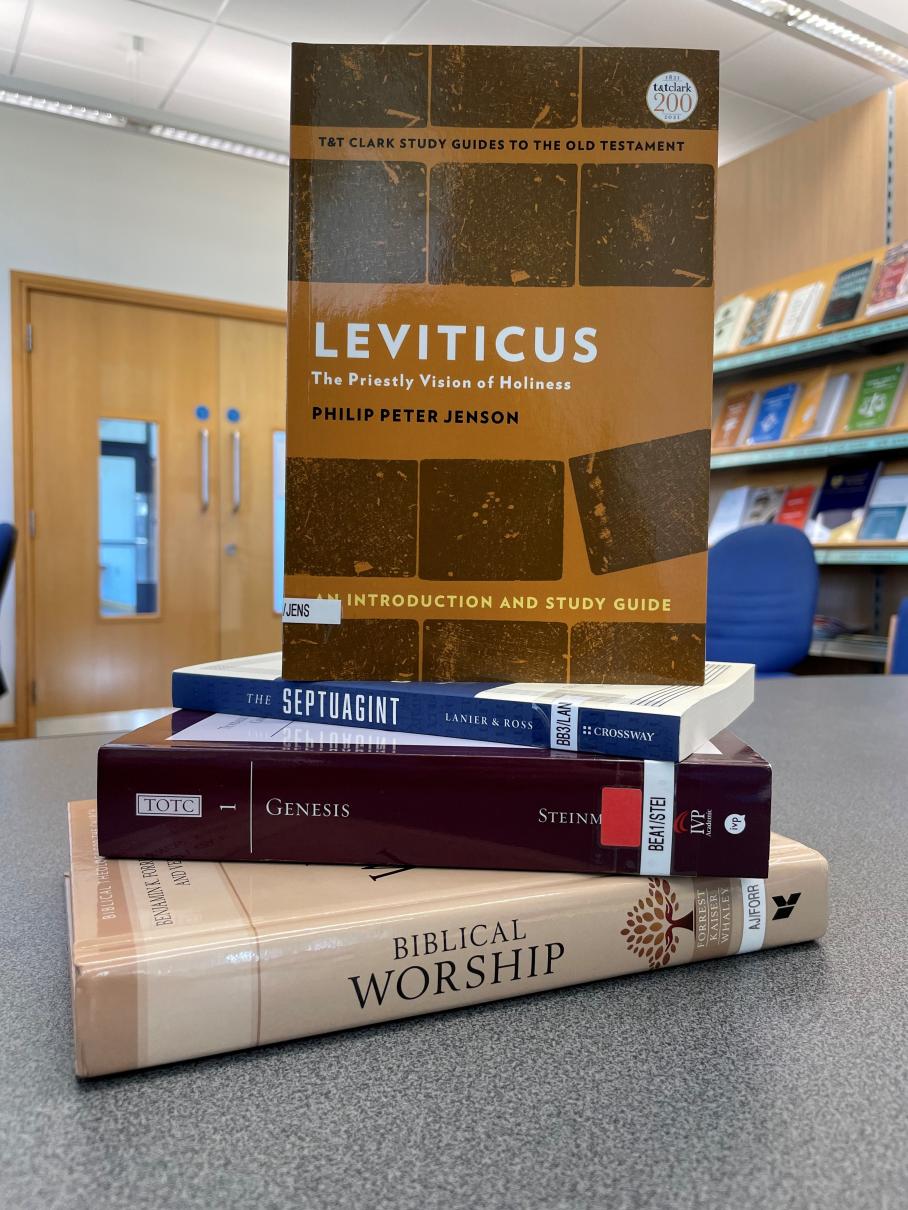New Books in the Library

New Books in the Library
By Claire McNabb
The books that we review on the blog aren’t always newly published, but they are new to the College library. This week we have a selection of books which focus on the Old Testament.
Biblical Worship: Theology for God’s Glory by Benjamin K. Forrest, Walter C. Kaiser Jr, Vernon M. Whaley (2021)
Biblical Worship plumbs every part of the Bible to uncover its teaching on worship, and then applies these insights to our lives and churches today. A team of respected evangelical scholars unearths insights into a variety of issues surrounding worship through Scripture. Anyone who wants to grow in knowledge of the Bible’s full teaching on worship and how it applies today will benefit from this volume.
Leviticus: The Priestly Vision of Holiness by Philip Peter Jenson (2021)
In this guide, Philip Peter Jenson provides an introduction to Leviticus, examining its structure, character and content. In particular, he focuses on explaining the basic concepts that inform the rituals and ethics of Leviticus. This is especially the case for the pervasive and complex category of holiness, along with its antithesis, impurity. Overall, Jenson’s emphasis is on the overarching coherence of the book and how it reached its present canonical form. Leviticus is a difficult book for most readers, describing rituals that are no longer practised and reflecting a culture that is vastly different from that of the modern West. Yet it is the central book of the first section of the Bible of both Jews and Christians, and it is at the heart of the law revealed to Moses on Mount Sinai. It includes the foundational texts on matters such as sacrifice or love for one’s neighbour. In this comprehensive introduction, Jenson offers extensive analysis, and concludes each chapter with reflections on the contemporary significance of the texts being discussed.
Genesis by Andrew E. Steinmann (2019)
Genesis is a book of origins: of the world, of sin, of God’s promise of redemption, and of the people of Israel. It traces God’s pledge to send a Saviour through Abraham’s line down to his great-grandson Judah. It serves as a foundation for the New Testament and its teaching that Jesus is the fulfilment of God’s promise to save humankind from sin and death. Andrew Steinmann’s thorough exegetical commentary includes a reconstructed timeline of events from Abraham’s life through to the death of Joseph.
The Septuagint: What It Is and Why It Matters by Gregory R. Lanier and William A. Ross (2021)
Scholars and laypeople alike have stumbled over Bible footnotes about the Septuagint, the Greek translation of the Old Testament. Many wonder, What is it? Why do some verses differ from the Hebrew text? Is it important to Scripture? In this introduction to the Septuagint, Gregory R. Lanier and William A. Ross clarify its origin, transmission, and language. By studying its significance for both the Old and New Testaments, believers can understand the Septuagint’s place in Judeo-Christian history as well as in church today.





